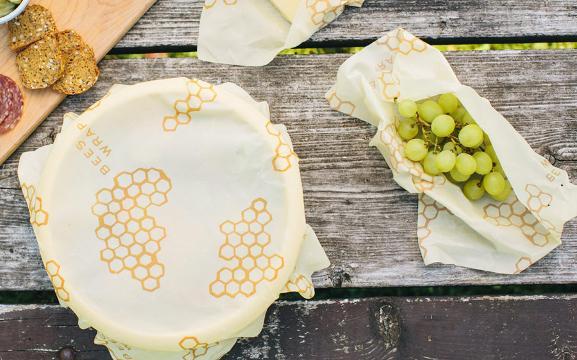Is Plastic Safe For Wrapping and Storing Food?
Your mother might have prevented the entire debate about
plastic, because in her own day aluminum foil was king. In those days the
greatest name in plastic was Tupperware, that was only accessible through home
parties. The choices appear to focus on plastic, whether it's a wrap or perhaps
a handy container.
Let us start with aluminum foil. It's still a practical
choice. It's thin, pliable along with a superior choice to keep out moisture,
air and odors. It's available in very handy when grilling, since it can
withstand heat.
Which is also great for storing beeswax food wraps products within the freezer. What your mother might not have recognized is you shouldn't reuse aluminum foil. Bending or creasing it makes holes that permit air, moisture and odors to enter what seems to become a solid barrier. Take care not to wrap acidic foods, for example fruits or onions with foil. The acidity during these foods will eat well through it.
Which is also great for storing beeswax food wraps products within the freezer. What your mother might not have recognized is you shouldn't reuse aluminum foil. Bending or creasing it makes holes that permit air, moisture and odors to enter what seems to become a solid barrier. Take care not to wrap acidic foods, for example fruits or onions with foil. The acidity during these foods will eat well through it.
Wax paper genuinely does have a coating of wax on each side
of the thin piece of paper that's somewhat transparent. Wax can be used to help
keep foods from sticking with it, and previously it had been accustomed to line
baking pans. It had been also accustomed to unveil cookie dough for cutouts.
Like foil, wax paper is touted to be moisture proof. However, when employed for
wrapping and freezing meats, it features a inclination that you follow the meat
and it is frequently hard to remove when defrosting within the microwave.
Plastic wrap has lots of advantages which have rendered it
the wrapping paper of preference. First, it's totally transparent, so that you
can see that which you have wrapped. Second, being able to adhere or cling
aside of the bowl or pan reusable causes it to be a great barrier to air, odors and
moisture. Although most moldable wraps are manufactured from polyethylene, many
are manufactured from PVC.
Yes, exactly the same PVC accustomed to make pipes
in plumbing. However that really is not the priority.
The debate started when plasticizers were added to help make
the wraps more flexible. These plasticizers can transfer to foods if there's
extended contact, especially during microwaving. Due to this scare several
companies have reformulated their wraps so they no more contain plasticizers.
Other components might be present, however. It behooves you to definitely
research and discover when the one you use is really "microwave
safe." Search for these words around the package or look them up on the
web by their product or manufacturer's name. Be sure to lookup plastic sandwich
or freezer bags too.
Because wraps with plasticizers are less costly, they're
that appears to be utilized by commercial producers. Safe consider rewrapping
meats, cheeses, cookie dough along with other foods which come packaged in
plastic with wraps you have discovered to be safer. This is particularly
important if you're storing them within the freezer for a long time. If you're
really paranoid, consider reducing the meals sections that are exposed to the
plastic.
To become careful and to save cash, you will want a
microwave cover which has holes inside it. Make use of this rather of plastic
wrap to pay for foods cooked within the microwave. Probably the most decided
way of preventing the change in chemicals for your food within the microwave
would be to stop your food from touching the plastic wrap whatsoever. Get a
paper towel (with no synthetic fibers) rather or transfer the food to some glass
or ceramic container before cooking.


Comments
Post a Comment